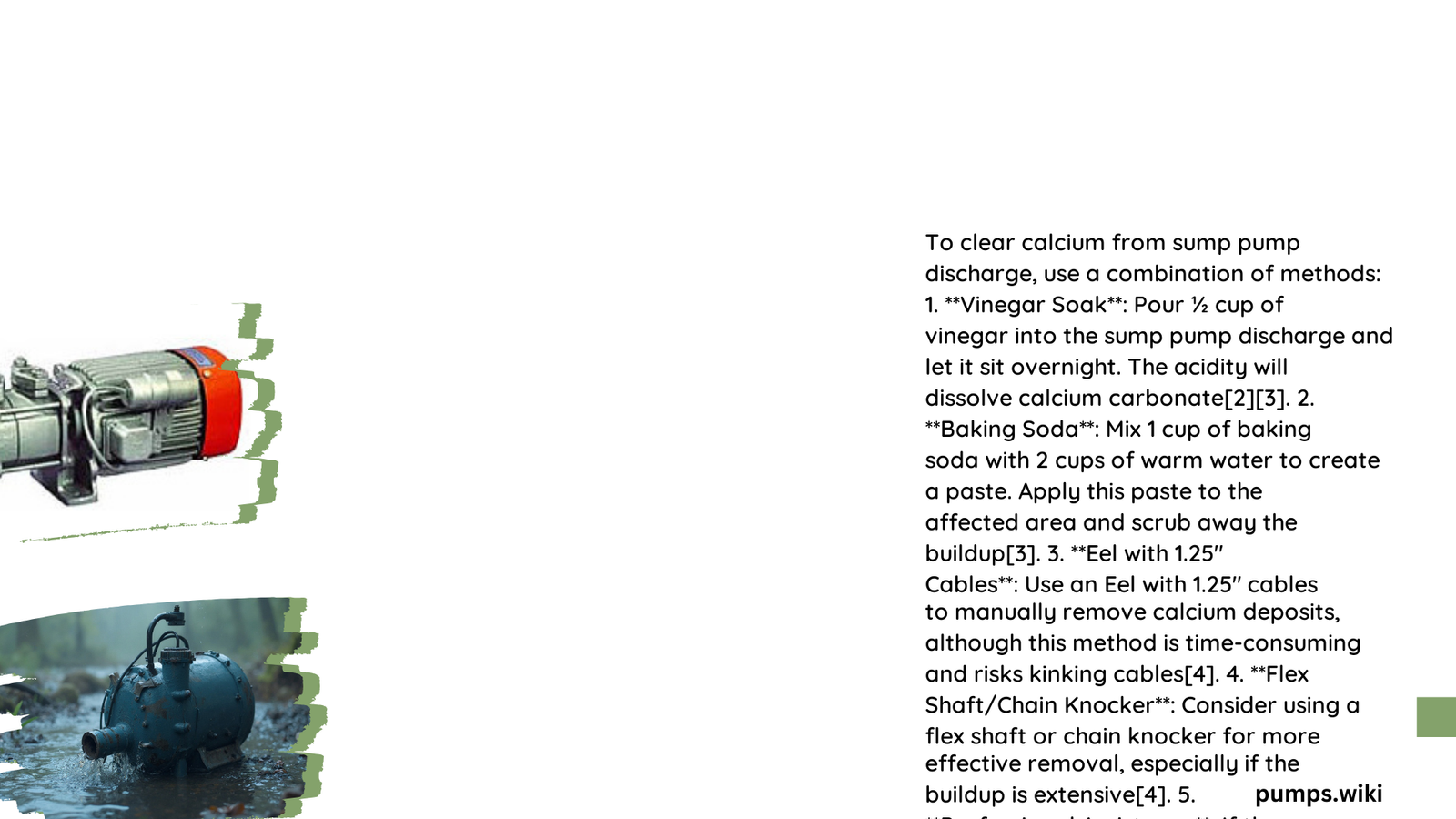Calcium buildup in sump pump discharge lines can significantly impair system performance, reducing water flow and potentially causing long-term damage. Homeowners face challenges with mineral deposits that accumulate over time, creating blockages and reducing efficiency. Understanding effective removal techniques and preventative measures is crucial for maintaining a healthy sump pump system and preventing costly repairs.
What Causes Calcium Buildup in Sump Pump Discharge?
Calcium accumulation occurs primarily due to hard water containing high mineral concentrations. Factors contributing to mineral deposits include:
- Water Hardness Levels: Regions with calcium-rich groundwater
- Age of Plumbing System: Older pipes more susceptible to mineral accumulation
- Water Temperature: Higher temperatures accelerate mineral crystallization
How Can You Identify Calcium Deposits?

Visual Indicators
- White or chalky residue around discharge pipes
- Reduced water flow rate
- Decreased pump efficiency
- Visible scale formations on pipe surfaces
What Are the Most Effective Cleaning Methods?
Natural Cleaning Solutions
| Method | Effectiveness | Cost | Time Required |
|---|---|---|---|
| Vinegar Solution | High | Low | 30-120 minutes |
| Baking Soda Mixture | Moderate | Low | 45-90 minutes |
| CLR Chemical Cleaner | Very High | Medium | 15-30 minutes |
Step-by-Step Cleaning Process
- Preparation
- Turn off sump pump power
- Disconnect discharge pipe
-
Gather cleaning materials
-
Chemical Treatment
- Pour selected cleaning solution
- Allow recommended soaking time
-
Flush with hot water
-
Mechanical Removal
- Use soft brush for stubborn deposits
- Rinse thoroughly
- Reassemble pump components
What Preventative Measures Can Be Implemented?
Long-Term Strategies
- Install water softening system
- Regular maintenance checks
- Annual professional inspection
- Use filtration technologies
What Are the Potential Risks of Ignoring Calcium Buildup?
Neglecting calcium removal can lead to:
– Complete system failure
– Increased energy consumption
– Reduced pump lifespan
– Potential water damage
– Costly replacement expenses
How Often Should Calcium Removal Be Performed?
Recommended Maintenance Schedule
- Soft Water Regions: Annually
- Hard Water Areas: Quarterly
- Extreme Mineral Zones: Bi-monthly
Professional vs. DIY Approach
Cost Comparison
- DIY Method: $5-$50
- Professional Service: $100-$500
Technical Considerations
Equipment Needed
- Protective gloves
- Chemical-resistant containers
- Pipe wrench
- Cleaning brushes
- pH testing strips
Expert Recommendations
Professional plumbers suggest:
– Use non-corrosive cleaning agents
– Avoid harsh chemical combinations
– Monitor water quality regularly
– Consider comprehensive water treatment solutions
Conclusion
Clearing calcium from sump pump discharge requires systematic approach, understanding of mineral dynamics, and consistent maintenance. By implementing recommended strategies, homeowners can ensure optimal system performance and longevity.
